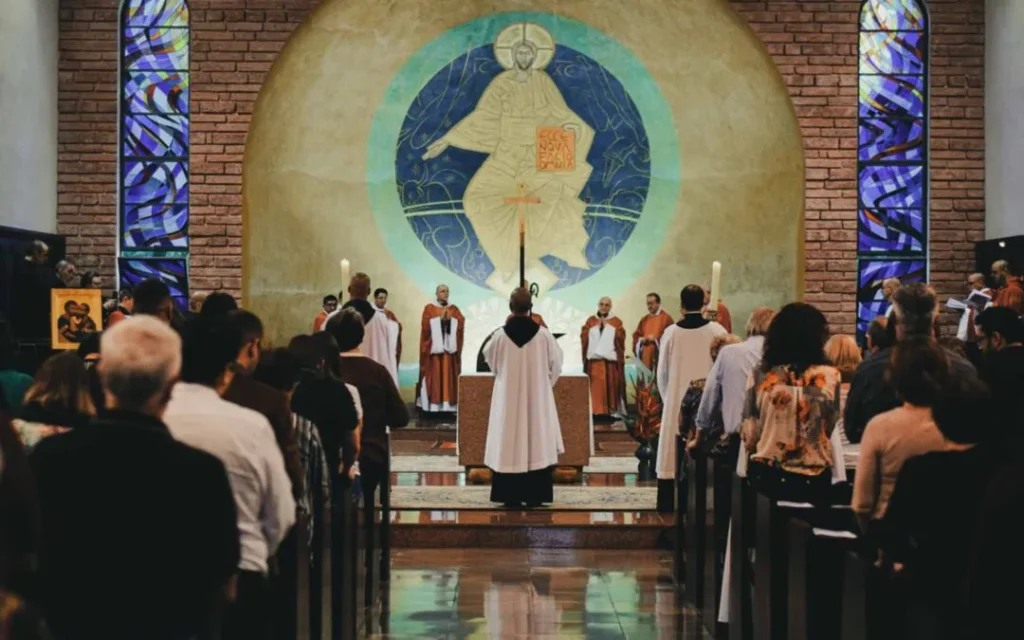The Mysterium Fidei, an essential document in Catholic doctrine, delves into the profound mystery of the Eucharist. This sacred sacrament, believed to contain the body and blood of Christ, holds a central place in the faith of millions worldwide. In this article, we’ll explore the key aspects of Mysterium Fidei while maintaining a neutral perspective.
Mysterium Fidei, which translates to “Mystery of Faith,” was promulgated by Pope Paul VI in 1965. Its purpose was to reinforce the longstanding belief in the real presence of Jesus Christ in the Eucharist and to address certain misconceptions that had arisen over time. The document expounds upon the deep theological implications of this sacrament, unraveling its symbolism and significance.
Central to Mysterium Fidei is the concept of transubstantiation — the transformation of the bread and wine into the actual body and blood of Christ. Considered a profound mystery by Catholics, transubstantiation is believed to occur during the consecration, an integral part of the Mass. Mysterium Fidei highlights the importance of preserving this belief and cautions against any deviation from the established doctrine.
The document emphasizes the sacredness of the Eucharist and calls for a deep reverence during its reception. It recognizes the diverse customs and practices found within the Catholic Church but urges against actions that might detract from the solemnity and the true essence of the sacrament itself. Mysterium Fidei asserts that maintaining the integrity of this ancient rite is crucial for the faith community.
While Mysterium Fidei aims to reinforce traditional teachings, it acknowledges the need for ongoing dialogue. The document encourages theologians to delve further into the mystery of the Eucharist, studying and reflecting on its profound significance. This openness to exploration shows the Catholic Church’s willingness to engage with scholars and foster a deeper understanding of this central sacrament.
Although it has received its fair share of criticism over the years, particularly from those who question the concept of transubstantiation, it remains an influential theological text. Its release prompted discussions both within and beyond the Catholic Church, inviting theological reflections and contributing to an ongoing dialogue on matters of faith and worship.
While opinions on Mysterium Fidei may differ, its lasting impact on Catholic liturgy and dogma cannot be denied. This document continues to inform the beliefs and practices of millions worldwide, shaping the way in which the Eucharist is celebrated and understood. It serves as a reminder of the profundity and rich symbolism that lies at the core of the Catholic faith.
In conclusion, Mysterium Fidei stands as a foundational text within Catholic doctrine, elucidating the mysterious nature of the Eucharist. Its neutral interpretation offers an academic perspective on the significance of transubstantiation and the enduring value of the sacrament. Whether one adheres to its teachings or engages in critical discourse, Mysterium Fidei remains an essential part of Catholic theological heritage.
